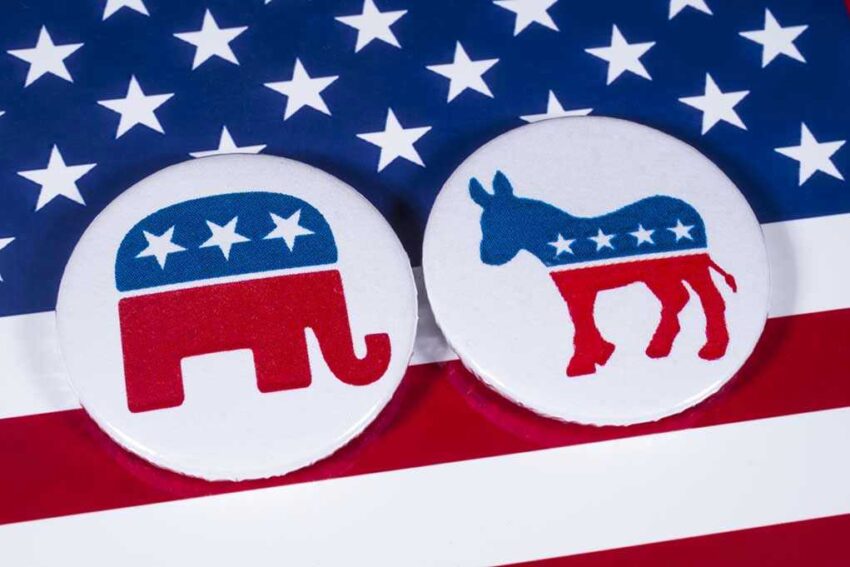The dramatic surge in Republican voter registration has led to a political realignment, challenging Democratic strongholds and reshaping the electoral landscape.
Story Highlights
- Democrats lost over 2 million registered voters between 2020 and 2024.
- Republicans gained slightly more than the Democrats lost, contributing to their recent electoral victories.
- Nearly half of new voter registrations are now independent or unaffiliated, signaling a shift away from traditional party loyalty.
- The trend has sparked widespread debate on the future of U.S. party politics.
Voter Registration Trends Signal Major Shift
The New York Times recently published an analysis revealing a significant shift in voter registration trends from 2020 to 2024. Democrats saw a loss of over 2 million registered voters, while Republicans gained slightly more. This shift has been instrumental in recent Republican victories in the 2024 House and Senate races, as well as President Trump’s successful re-election campaign. The data highlights a sweeping change in the political landscape, raising questions about the future strategies of both major parties.
The analysis, conducted across more than two dozen states, shows that Republicans have overtaken Democrats in new voter registrations. The Republican share of new registrations increased by 9 percentage points, while the Democratic share dropped by nearly 8 points. This trend is consistent across all states that track party affiliation, indicating a nationwide shift. Critics, however, point out that the rise in independent and unaffiliated registrations is also significant, as these now make up nearly half of all new registrations.
Implications for Future Elections
With the rise of independent voters, the political landscape is becoming increasingly complex. The growing number of unaffiliated voters suggests a potential weakening of traditional party loyalties. This shift could have long-term implications, potentially leading to structural changes in the U.S. political system. For Republicans, the current trends represent an opportunity to consolidate their gains and strengthen their influence. Meanwhile, Democrats face the challenge of re-engaging their base and appealing to disenchanted voters.
Experts warn that while the registration trends indicate a shift, they do not necessarily predict voting behavior. Party-switching and turnout remain critical factors that can influence election outcomes. The increase in independent registrations reflects broader dissatisfaction with both major parties, highlighting the need for political reforms and new strategies to engage voters effectively.
Challenges and Opportunities Ahead
As the two major parties navigate this new political reality, they must address the underlying causes of voter disaffection. For Democrats, this means reassessing their strategies and focusing on grassroots organizing and messaging. Republicans, on the other hand, are looking to capitalize on their momentum by broadening their appeal and addressing key voter concerns. The rise of independent voters presents both a challenge and an opportunity for political reformers who advocate for a more representative and pluralistic political system.
NYT: Another New ‘Nightmare Scenario’ Is Unfolding for Democrats https://t.co/PpYEdOLB10
— J. Metz (@Metz1245John) August 27, 2025
The shifting voter registration landscape underscores the dynamic nature of U.S. politics. As independents gain influence, both parties will need to adapt to stay relevant. The traditional two-party system could face increasing pressure to evolve and address the demands of a changing electorate. This realignment offers a chance to rethink political strategies and policies to better reflect the diverse interests of American voters.
Sources:
IVN: Hey New York Times, Your Party Voter Registration Story is Pretty Bad
Click this link for the original source of this article.
Author: editor
This content is courtesy of, and owned and copyrighted by, https://republicannews.org and its author. This content is made available by use of the public RSS feed offered by the host site and is used for educational purposes only. If you are the author or represent the host site and would like this content removed now and in the future, please contact USSANews.com using the email address in the Contact page found in the website menu.





